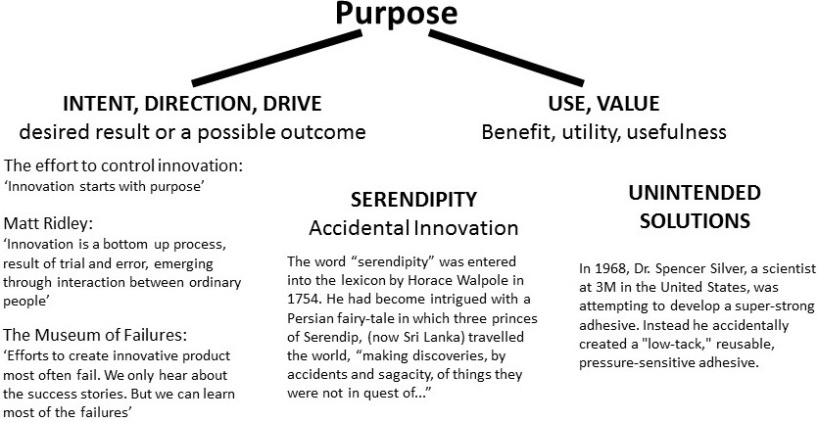success or failure
Innovation starts with Purpose
In his best-selling book Start with Why, Simon Sinek suggests that purpose is a statement of why people should care about what an organization does. He suggests that people don’t buy what an organization does, but rather why a company does it.
So far, we cannot but agree!
Purpose can mean two things:
- The intent, with which the quest for an innovation gets it's sense of direction;
- The added value that an innovative product/service has for people who use it.


It's becoming difficult when we try to get 'grip' on innovation.
For certain, if we want to arrive at innovation and try to keep 'grip' on the effort and the process.
Many efforts lead to failures.
Why we do not hear about the failures?: organisations sweep their failures under the carpet. That's a pity, because we can learn lots, especially of the things that go wrong. Getting information about failures is not easy.
In the travelling Museum of Failure Samuel West tries to focus on just failing innovation efforts. Have a look at his website: www.museumoffailure.com
Especially in the transition from startup to Scale-Up we see a large number of innovations fail. What we, the Bluefinger Innovation Center and a number of influential parties in the Zwolle region try to do about that, you can read under the (sub)pages About Innovators
In his publication The Disruption Paradox, the author, Menno Lanting summarizes his findings:
- We miss an important part of the nuances and only see
the winners being dished up;
- Every year we can welcome hundreds of startups in the
the Netherlands, only a handful will succeed; only
0,05% will be international successful;
- It is very difficult to make new concepts profitable;
- From research we have found out that existing larger
companies in the end are more successful than
newcomers in disrupting solutions, because they have
deeper pockets and they are more skilled in putting a
new concept widely in the market;
- Exposure of power: Larger parties just take over
(potential) new competitors for continuing when it's
successful or otherwise close it down;
- 'Winner takes it all mechanism'.


